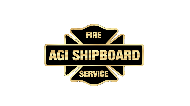SERVICES - Seafarers Marine Fire Fighting and Emergency Preparedness
With firefighting and emergency preparedness considered secondary duties for any seafarer, your crew must have the required knowledge, skills and competence to effectively and safely respond to any emergency on board the vessel. Whether you are at sea or in port, should a fire occur, your crew must be properly trained and ready to respond.
Marine Firefighting for Seafarers
Our site-specific training program is designed to meet, if not surpass, a majority of other marine firefighting courses offered to seafarers. You are responsible for your crew and vessel at sea without the support from land-based organizations. Be proactive, not reactive. Prepare for a fire emergency before it occurs.
This training provides seafarers with knowledge of:
Crew Response Team Structure and Procedures – Entire Crew
Initial Response Party Structure and Procedures
Bridge, Deck, Engine & Catering Watch Officers Response
Fire Party Structure and Team Leader Duties
Fixed Suppression System Deployment
Thorough Understanding of Crew’s Muster list Responsibilities
Marine Fire Fighting Procedures and Personal Protective Equipment
Effective Communication Techniques
Boundary Control Techniques
Portable Fire Extinguisher Operation
Hose Handling Techniques
Incident Tracking/Plotting Procedures
Incident Command & Control Techniques
Ventilation Control and De-smoke Procedures
Post Incident Activities
Crowd Management Techniques
First Aid Attendant Assessment
Ship-to-Shore Interface with Local Fire Departments
Basic Helicopter Crash Rescue Procedures (as required)
Marine Fire Fighter I
Designed as an introduction to Marine Fire Fighting, this program/course provides land-based firefighters who are responsible for marine firefighting operations, with the job performance requirements for firefighting operations aboard commercial/military vessels involved in fire. Firefighters will learn the knowledge and skills required to respond to an incident and operate in the proximity of a vessel or dock providing support functions in the cold and warm zones on board a vessel.
This program/course provides firefighters with knowledge of:
Vessel Types
Vessel Construction
Types of Marine Facilities and the Hazards Associated with each
Accessing the Vessel and Assessing the Situation
Using Pre-incident Plans and Vessel Fire Plans
Developing and Reviewing Ship-to-Shore Interface Procedures
Developing Incident Action Plans
Apparatus and Equipment Positioning given Vessel Movement
Establishing Effective Communication and Mitigating Factors
Vessel Stability Concerns
Establishing Effective Water Supply
Casualty Rescue Operations
Basic Fire Boat Operations
Identifying and Locating Vessel Responsible Person as Liaison
Locating and Retrieval of Fire Control Plans
Ship’s Personnel – Roles and Responsibilities
Marine Fire Fighter II
Building on Marine Fire Fighter I, this program is designed to meet the requirements for Marine Fire Fighter II in accordance with NFPA 1005.
This course provides firefighters with knowledge of:
Developing Team Assignments and Tactics
Implementing Entry, Attack and Ventilation Procedures
Cargo Transfer Hazards Associated with Fire Fighting Operations
Establishing Effective Boundary Control Preventing Fire Spread
Types of Vessel Fixed Suppression Systems
Specific On Board Fire Attack Procedures
Operating as a Member of the Rapid Assessment Team, Search Team, Attack Team,
Boundary Team or Incident Command Team
Event Plotting/Tracking Using Fire Control Plan
Marina Fire Fighting Procedures
Practical realistic scenarios will be conducted to ensure lessons learned are reinforced through a thorough debrief following each evolution.
A detailed report is provided following the Marine Fire Fighter I & II course. The report provides our observations concerning your team’s response during practical evolutions/scenarios, complete with recommendations for improvement.

